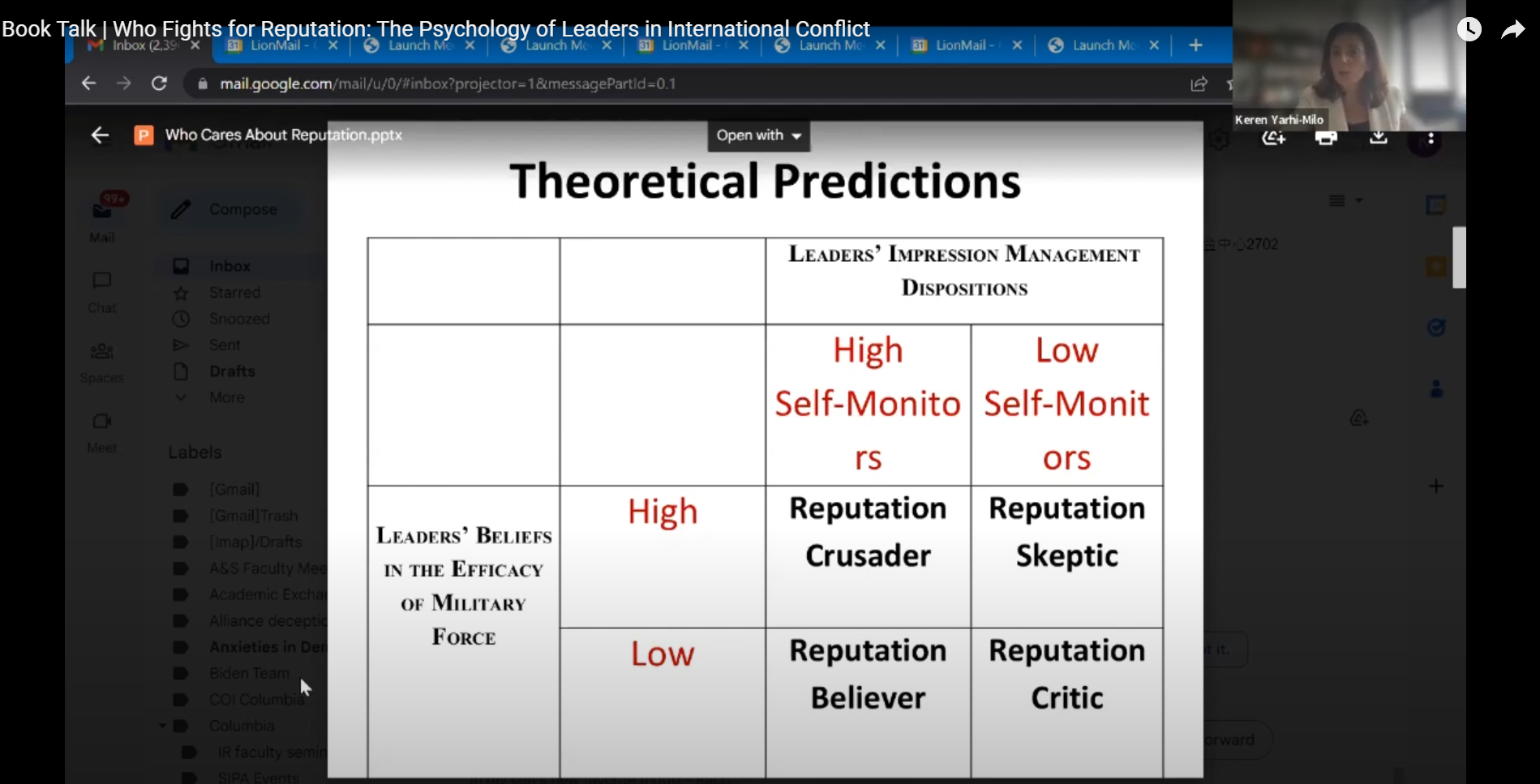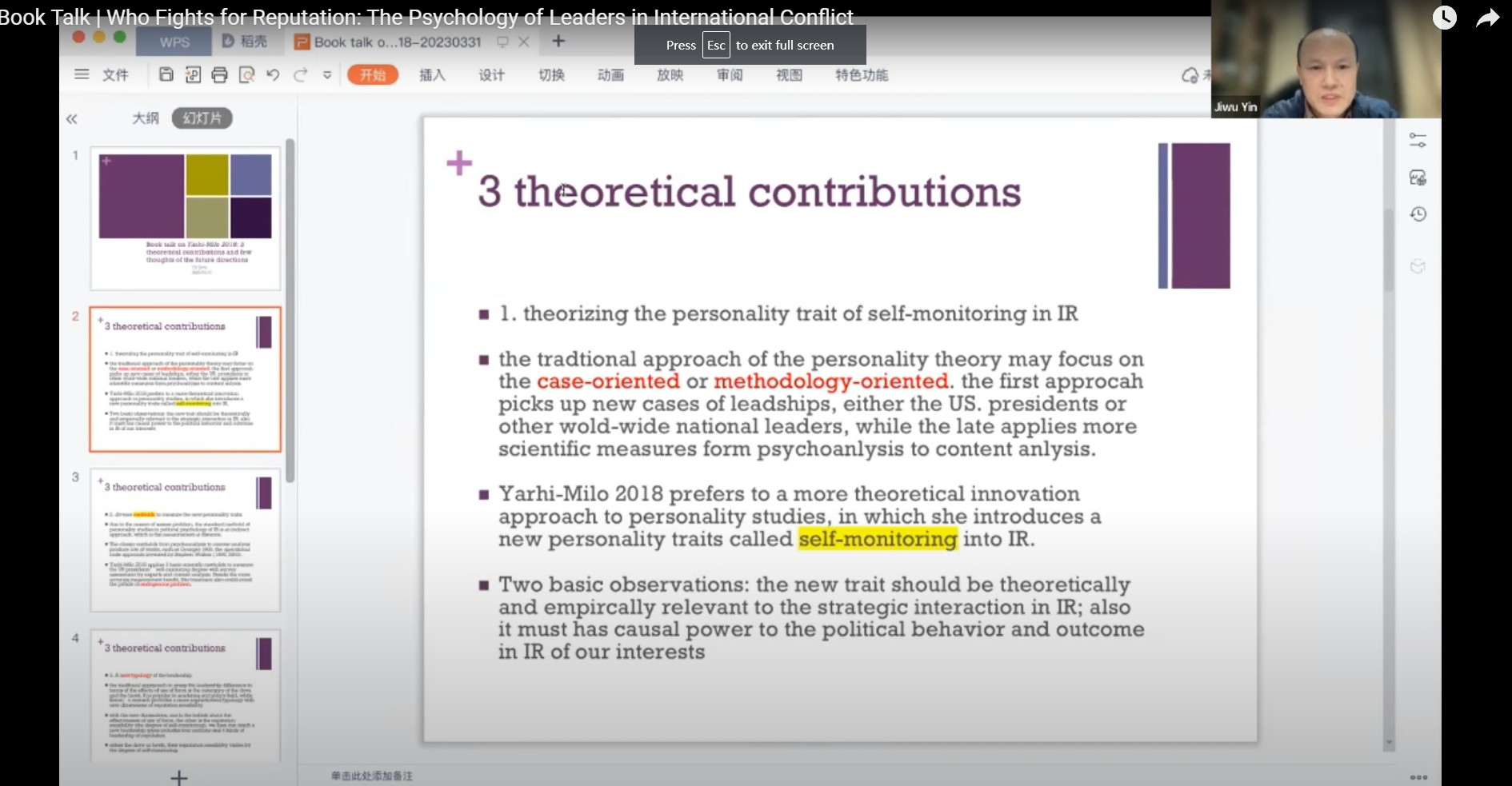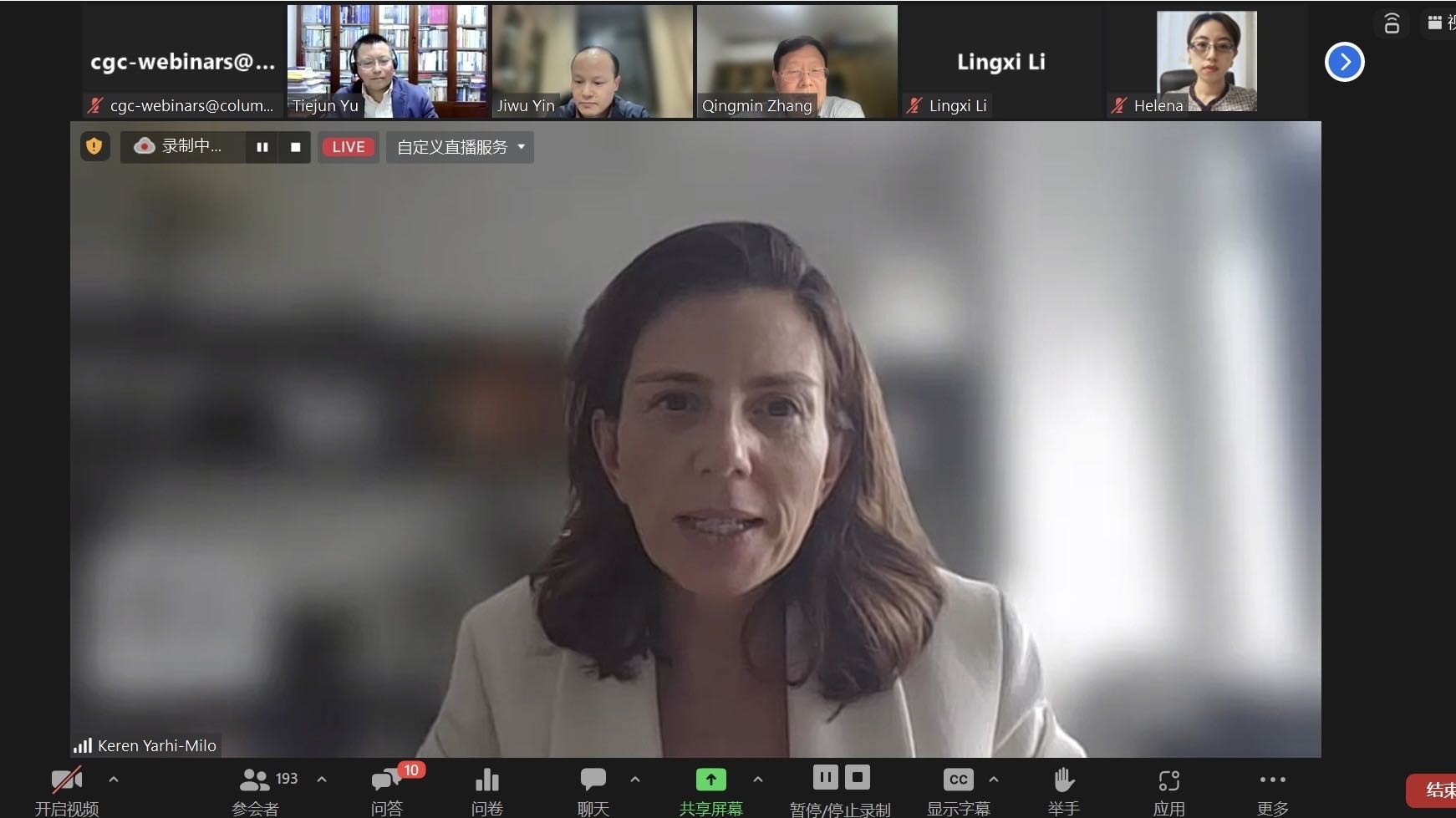An Original Theoretical Framework From the Dean of SIPA Bridged US and Chinese Scholars in International Relations
Watch the recording of the webinar here.
What explains variations in concern about reputation for resolve among leaders? Most existing explanations have focused on features of the strategic environment or the specific crisis. In Who Fights for Reputation: the Psychology of Leaders in International Conflict (Princeton University Press, 2018), the author Keren Yarhi-Milo provides an original framework based on psychological insights to explain why some political leaders are more willing to use military force to defend their reputations than others.
Featuring the book and facilitating exchanges on an alternative framework, Columbia Global Centers | Beijing, in partnership with Princeton University Press and the School of International Studies at Peking University, invited Keren Yarhi-Milo, the dean of Columbia University's School of International and Public Affairs (SIPA) and the Adlai E. Stevenson Professor of International Relations, and senior scholars from China——Jiwu Yin, Qingmin Zhang, and Tiejun Yu to join a book talk and discussion.
The online event attracted more than 200 audiences to attend on Zoom webinar, and around 1,000 audiences watched the live stream via multiple channels of the Beijing Center. The webinar began with a keynote address by Yarhi-Milo and followed by Zhang and Yin's comments. Yarhi-Milo first put forward a question——why do we see the variation in decision-makers who are concerned with a reputation for resolving international conflicts? She argued that the propensity for military force could not explain, and then she brought a new analytical framework that focuses on national leaders' psychological disposition and beliefs.

Yarhi-Milo further introduced the theoretical predictions in her book and emphasized that the alternative theory is beneficial in understanding contemporary US conflict history, military intervention, crisis escalation, and the application of military force. She comprehensively overviewed her methodological approaches, including survey experiments, statistical analysis, and case studies to test the theory. This provided scholars, researchers, and audiences with implications for different areas.
Tiejun Yu, the webinar moderator, invited Zhang and Yin to comment. Zhang highlighted Yarhi-Milo's solid research methodology, and he built on psychological disposition, saying that international relations, in reality, are also people's relations. Zhang thought the book found a significant variable as "self-monitoring". Before Yarhi-Milo's research, this variable was not investigated in international relations. Zhang also shared his personal feeling about reading the book——he first became critical of some cases the author chose. However, he could find answers to previous puzzles when he continued reading.

Yin summarized the theoretical contributions from Yarhi-Milo's book and then pointed out future directions he gained from the author. He shared his observations that a new trait in international relations should be theoretically and empirically relevant to a strategic interaction and has casual power over political behavior and outcomes. Yin also expressed his interest and reflections on exploring a more sophisticated typology of "self-monitoring" traits.
Yarhi-Milo expressed her gratitude for insightful comments from the discussants and all online participants who asked many questions. She answered some questions from the discussants and the audience. She pointed out that further research on "self-monitoring" should be done within the community of scholars beyond boundaries, and she was also looking forward to visiting China soon.

